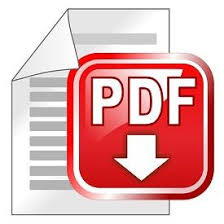Location:
PMKI > Organizations
& Governance > Portfolio Management.


- Portfolio Management Overview
- Project/Program Selection Processes
- Useful External Web-links &
Resources.
Other related sections of the PMKI:
- Project Initiation
- Integrated Portfolio,
Program and Project (PPP) Management Tools
A portfolio is a collection of projects and/or programs and other work that is grouped together to facilitate the effective selection and management of the work undertaken within the portfolio to meet strategic business objectives. Portfolio Management focuses on selecting the right projects and programs for the organization to undertake and the monitoring and review of the on-going work to maximize the value to the organization. The process of managing a portfolio includes developing process to maintain strategic alignment and developing the portfolio strategy to balance risk, opportunities and rewards.
WP: Portfolio Management. A portfolio is a collection of projects and/or programs and other work that is grouped together to facilitate the effective selection, alignment and management of the work.
Prs: Optimizing the
Value of Portfolios through Governance.
Effective portfolio governance ensures that an
organization selects the right projects to do based on its
strategic objectives, it is a ‘top down’ process lead by
the ‘board’. Effective portfolio governance is not the
same as effective portfolio management. Both processes
require an overarching philosophy, appropriately funded
and supported by skilled and organized people, appropriate
technology, and systems; but they are different.
The corporate governance framework is there to encourage
the efficient use of resources by an organization's
managers, and equally to require accountability for the
stewardship of those resources. Its aim is to align as
nearly as possible the interests of individuals, the
organization and society. Project, Program and Portfolio
governance is a subset of corporate governance, it focuses
on areas of corporate governance related to project
activities, including:
- Portfolio direction
- Project sponsorship
- Project & Program management & efficiency
- Disclosure and reporting
Prs: Portfolio governance and risk – it’s all about the stakeholder. Risk is subjective! Some people think it is fun to jump out of perfectly good working aircraft and parachute to earth, others of us prefer our flying to be accompanied by a nicely served gin and tonic. Different people have different perspectives on the risks they are prepared to take, and the rewards they anticipate as a consequence of their flight. Investing in a project is similar; there is no such thing as a ‘risk free’ project and the art of portfolio management is to balance the risks and rewards of investing in projects, whilst keeping the overall risk exposure at a level that is acceptable to the key stakeholders, and still generate the expected rewards. This is a difficult balancing act. To set the framework for the main discussion, this presentation briefly outlines the three levels of risk, individual risks in the ‘risk register’, the overall project risk and the balancing effect of holding a portfolio of risks. It then briefly outlines the function of governance, best defined as ‘the system by which entities are directed and controlled’. The governing body represents the interests of the organizations ‘owners’ and is responsible for the governance system which defines the parameters within which management are expected to operate. Within this framework the function of portfolio management as a risk optimizer will be discussed. Investing in the right projects for the right reasons to generate acceptable returns is subjective, and is determined by stakeholder attitudes. The presentation emphasizes the importance of the portfolio management team investing their time in effective stakeholder communication to garner support for taking the ‘right risks’ to receive the ‘right rewards’, thereby ensuring the long term success of the organization.

The Standard for Portfolio Management – Fourth Edition is an important reference for anyone who works with portfolios from project and program managers to project stakeholders and senior managers; as well as providing portfolio managers with a resource to help them develop professionally and achieve success for themselves and their organizations. See more and Australian sales.
Techniques for selecting and ranking project and programs.
Art: Project Selection. The factors involved in supporting effective project selection processes.
WP: Ranking Requirements and Selecting Projects. Various techniques including: Rubrics, Numeric weightings and Pairwise Comparison.
Blg: The reference case for management reserves. Reference case forecasting is one way to remove the effect of optimism bias and other systemic errors in estimating the value of a project.
Blg: Defining Project Success using Project Success Criteria. Project success can be ephemeral – successful organizations work to define success so they know when it has been achieved!
Art: Achieving Real Project Success. There are at least three different criteria for success that can operate independently: Project Management Success, Technical Success & Business Success.
See more on: Defining project success, Benefits and Value.
Best Management Practice products, UK Government
(formally OGC, now Axelos) - the umbrella site dedicated
to making access to information quick and easy - https://www.axelos.com/
- MoP - Portfolio Management: https://www.axelos.com/best-practice-solutions/mop
 For papers on Portfolio Management presented
at the PGCS Annual Symposium see:
For papers on Portfolio Management presented
at the PGCS Annual Symposium see: